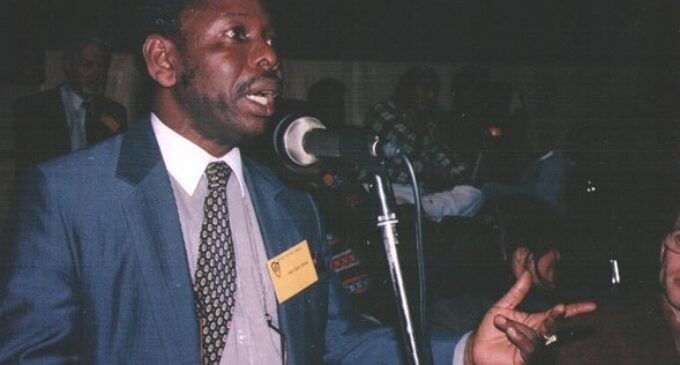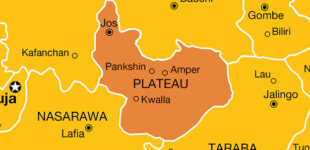Shell complicit in execution of Saro-Wiwa, says Amnesty

Amnesty International says Shell, oil giant, is complicit in the unlawful arrest, detention and execution of Ken Saro-Wiwa, human rights activist, and eight other men by the Abacha military government in November 1995.
The organisation said the allegation against Shell followed the launch of “an explosive new case against the company in the Netherlands over four of the executions”.
It said the civil case was brought by Esther Kiobel, the widow of Barinem Kiobel, and three other women.
Kiobel has pursued Shell for 20 years over the death of her husband who was hanged along with Saro-Wiwa, and seven other men, collectively known as the Ogoni Nine.
Kiobel accuses Shell of complicity in the unlawful arrest and detention of her husband; the violation of his personal integrity; the violation of his right to a fair trial and his right to life, and her own right to a family life.
Amnesty International supported Esther’s legal team to bring the case to the Netherland and has released a new briefing, In the dock, detailing the role played by Shell in the executions.
“The executions of the Ogoni Nine shocked the world. Shell has been dodging accountability for its complicity in these deaths for more than twenty years but now, thanks to Esther Kiobel’s determination and bravery in taking on this corporate Goliath, the past is finally catching up with it,” Audrey Gaughran, senior director of research at Amnesty International, said in a statement on Thursday.
“Today is a watershed moment in Esther Kiobel’s uphill battle for justice. Shell has to answer for the bloody footprints it left all over Ogoniland.”
A brutal campaign
Detailing events leading to the executions, the human rights watchdog said: “The executions were the culmination of a brutal campaign by Nigeria’s military to silence the protests of the Movement for the Survival of the Ogoni People (MOSOP), led by Ken Saro-Wiwa”.
“MOSOP said that others had grown rich on the oil that was pumped from under their soil, while pollution from spills and gas flaring had ‘led to the complete degradation of the Ogoni environment, turning [their] homeland into an ecological disaster’. In January 1993, MOSOP declared that Shell was no longer welcome to operate in Ogoniland.”
“The military authorities responded to the MOSOP protests with force, committing numerous serious human rights violations including killings, torture and rape.
Amnesty International said Kiobel was bringing a civil case along with Victoria Bera, Blessing Eawo and Charity Levula, whose husbands were executed along with hers, and that the claimants are demanding damages for harm caused by Shell’s unlawful actions, and a public apology for the role that the company played in the events leading to the deaths of their husbands.
“In May 1994, four Ogoni chiefs known to be opponents of MOSOP were murdered. Without presenting any evidence, the government blamed MOSOP and arrested scores of people, including Ken Saro-Wiwa and Barinem Kiobel,” it recalled.
“Kiobel was not a member of MOSOP, but had a senior government position and had been critical of the military’s actions in Ogoniland. He said he had tried to stop the murders – a version of events that was supported by evidence presented at the trial. Amnesty International considered Ken Saro-Wiwa and Barinem Kiobel prisoners of conscience, detained and ultimately killed for their peacefully held views.
“After the arrests, at least two prosecution witnesses came forward to say that they had been bribed by the government to incriminate the accused, including with offers of jobs at Shell, and that Shell’s lawyer was present when they were bribed. Shell has always denied these claims.
“Many of the Ogoni men arrested on suspicion of involvement in the murder of the four chiefs suffered repeated torture and other ill-treatment while detained. Even after the start of the trial, the military commander responsible for the incarceration allowed consultations between defendants and their lawyers only by prior arrangement with him, and usually only in his presence. Relatives said they were assaulted by soldiers when trying to visit the defendants.”
The organisation said Kiobel alleged that, while visiting her husband in prison, she was assaulted by a military commander and spent two weeks in detention where she was denied food and water.















There are no comments at the moment, do you want to add one?
Write a comment